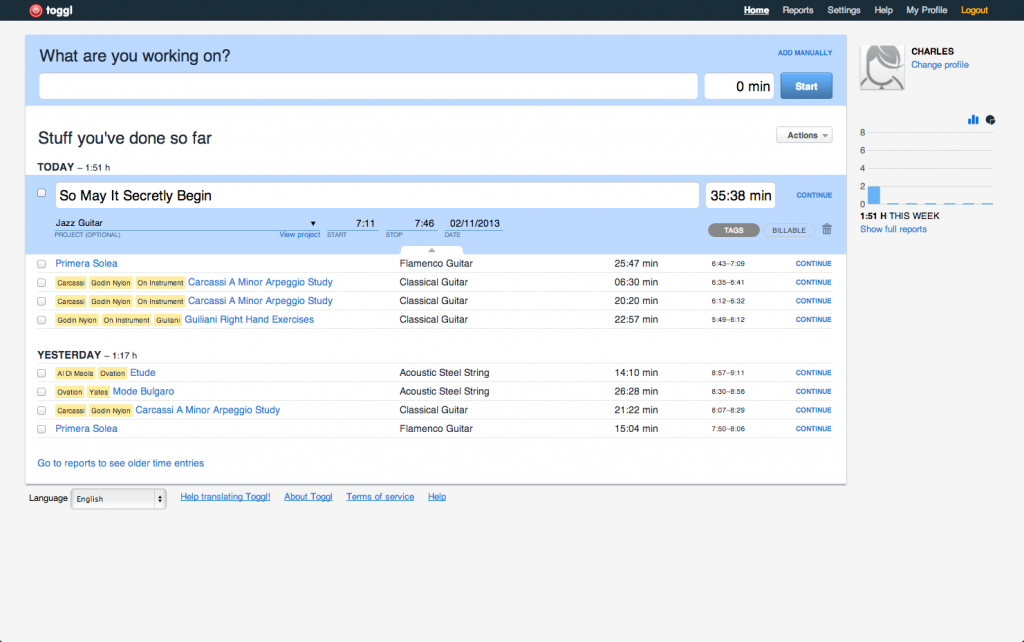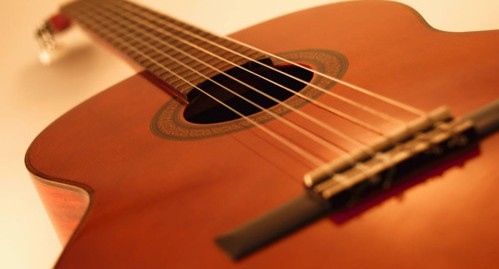 To achieve objectives one among other things has to know how one spends one time. Monitoring is key. If you are like me , you have several musical goals. Those goals are of different importance is the overall scheme of things. One way we give our goals different importance is by what we do and how much of our precious time we spend on a particular goal. Its therefore crucial if one is real about achieving one’s goals to measure what we are doing and how much time we are dedicating and then to measure that with how important we feel a goal is. If goal A is supposed to be 25% of your achievement basket then if you find that you are only spending 15% you then have a problem that needs correcting.
To achieve objectives one among other things has to know how one spends one time. Monitoring is key. If you are like me , you have several musical goals. Those goals are of different importance is the overall scheme of things. One way we give our goals different importance is by what we do and how much of our precious time we spend on a particular goal. Its therefore crucial if one is real about achieving one’s goals to measure what we are doing and how much time we are dedicating and then to measure that with how important we feel a goal is. If goal A is supposed to be 25% of your achievement basket then if you find that you are only spending 15% you then have a problem that needs correcting.
It comes down to if you are real you have to monitor your time so that you can reflect on how you spread your hours so that you can then correct. This is part of the what and when which is a big part of the equation , a big part of what it means to succeed in your musical goals as opposed to just pass time on your instrument. If that’s what one wants ok. But if not then monitor your time.
I used different approaches in the past. I’m now checking on Toggl, a free service which has a web app and counterpart Android and iOS apps.

Productivity and proper tools is kind of the holy grail isn’t it
Clearly all tasks whether creative or not have a component of task science. Perhaps the best use of the productivity tools are the ones that are more discipline oriented. For example sight reading and strength building exercises. or simply playing a passage of defined length note perfectly
There are areas that are perhaps specific to jazz study and improvisation though that is hard to make a dent in small incremental jabs because the results and what you are bringing to the table are much more about discovery, rather than predefined objectives. You may have to allow that to be a more wildcat experience if something is happening.
You are getting into the differences between the quantitative and the qualitative. Your points are valid. However, my point is exactly this, if you need to spend time on Jazz Improv for example , you better allocate time for Jazz Improv. If Jazz Improv is hugely important to you then you better spend more time on it or sufficient time. In either case regardless of the activity , understanding how much time you spent on it is important. This becomes even more important when you have multiple fronts you are working on. I have 9 projects / notebooks that I work on:
Classical Guitar
Acoustic Steel String Guitar
Jazz Guitar
Rock/Fusion Guitar
Bass Guitar
Drum Pad
Keyboard Studies
Composition
Recording / Mastering / Studio
I can’t do these all in my 2 hour morning session thus time spent needs to be spread across the week. If I am to be real about these being important and about the relative importance / priority I place on the various notebooks. I have to at the very least dedicate time. A lot of this comes from my experiences with software project management. The simple truth is that you have to spend the “cycles” on an objective to move forward on that objective. Measuring this quantitative aspect is important.
Now, true just because you spend the time doesn’t mean that you will actually accomplish your objectives but certainly if you don’t spend the time you will not get anywhere.
How you measure the actual progress on an objective is the subject for other monitoring / eval tools and processes and the subject for another post.